In a few previous posts, I tried to prove that Noah is an authentic character, the result of genetic engineering by visitors from another planet, and our creators. I also tried to prove that the flood, Noah and his family survived was the result of extraterrestrial intervention, and its purpose was to eliminate degenerate individuals, a failed genetic experiment.
In today’s post, I would like to take a closer look at Noah, because there are written commandments saying that the story of Noah was modeled on other, much older accounts.
According to many scientists, the authors of the Book of Genesis based themselves on epics and myths from other cultures. The equivalents of Noah are:
– Ziusudra – Sumerian version
– Atra-hasis (Atrahasis) – Mesopotamian version
– Ksisutros – another Mesopotamian version
– Utnapishtim from the Akkadian Epic of Gilgamesh
Atrahasis was the son of Abar-tutu, the first demigod (son of a god and a landowner) raised to the position of king in the city of Shuruppag (Akkadian Shuruppak), which was ruled by Ninmah (Ninhursag), sister of Enlil and Ea (Enki), daughter of Anu. Atrahasis was indirectly warned by the god Enki about the approaching flood and destruction of humanity. He was to build a boat according to the plans he received, place his closest family, servants, and belongings in it, and sail out to sea. According to the plans, Atrahasis was to sail his ship to the Abzu in southern Africa, where there were gold mines managed by Enki.
In the Epic of Gigamesh, Utnapishtim was to take on board the ship “all that had the seed of the living” or “seed of living beings” (Sumerian: NUMUN), which suggests that these were not living animals but animal embryos that could be recreated after the flood (genetic engineering).
Ziusudra is the hero of the Sumerian version of the flood story, recorded on a clay tablet. The text of the story is the original flood story known from the Akkadian Epic of Gilgamesh. The gods decide to send a flood “to destroy the seed of mankind”. One of the gods, Enki, feels sorry for the human race and instructs Ziusudra, the king of the city of Shuruppag, how to build a large boat in which he can survive the flood.
Xisutros* is the hero of the flood story in the Babyloniaca, written in Greek by Berossus, a Babylonian priest who lived in Babylon at the turn of the 4th and 3rd centuries BCE. In the story, Xisutros (the Greek version of the name of the Sumerian flood hero Ziusudra), warned of the flood by the god Cronus, saves his family, friends, and animals on a ship he built himself. When the flood waters begin to recede, he releases birds to see how much the waters have receded. The third group of birds does not return. Xisutros leaves the ship with his wife, daughter, and helmsman, offers sacrifices to the gods with them, and then they all disappear. The remaining passengers on the ship also leave the ship and walk to Babylon, leaving the ship resting in the mountains of Armenia. (*source: Wikipedia)
The biblical Noah was chosen by God to save the human race by loading an ark with his family’s belongings and one pair of animals each.
Noah is also compared to the Greek hero Deucalion, who, like Noah, was warned of the flood, built an ark, and sent a bird to check the effects of the flood.
Noah is also an extremely important figure in Islam and is considered one of the most important prophets. The Quran contains 43 references to Noah, or Nuḥ, in 28 chapters, and the seventy-first chapter, Surah Nūḥ (Arabic: سورة نوح), is named after him. His life is also mentioned in Islamic commentaries and legends.
The coherence of accounts is not accidental in my opinion, the stories are similar, newer versions could be based on older ones, providing evidence that the story of Noah is not the oldest, but is based on much older, Babylonian and Sumerian stories.
It is very possible that the flood really happened, around 10,500 BC, and the man chosen by God or Gods who was to survive was later the prototype of Noah.
Of course, these are hypotheses, speculations, but no one will prove that it really did not happen.
See also: https://en.wikipedia.org/wiki/Noah

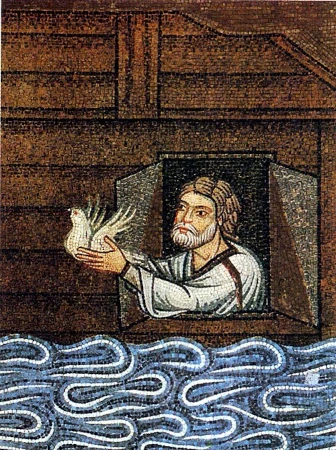
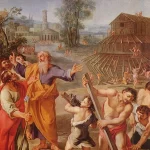
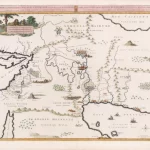
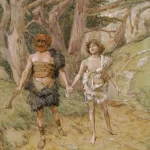
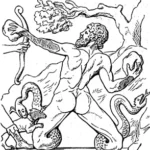
there are many similar stories about noah and the flood cross the whole world, I shoudn’t be sorprised if it really happend